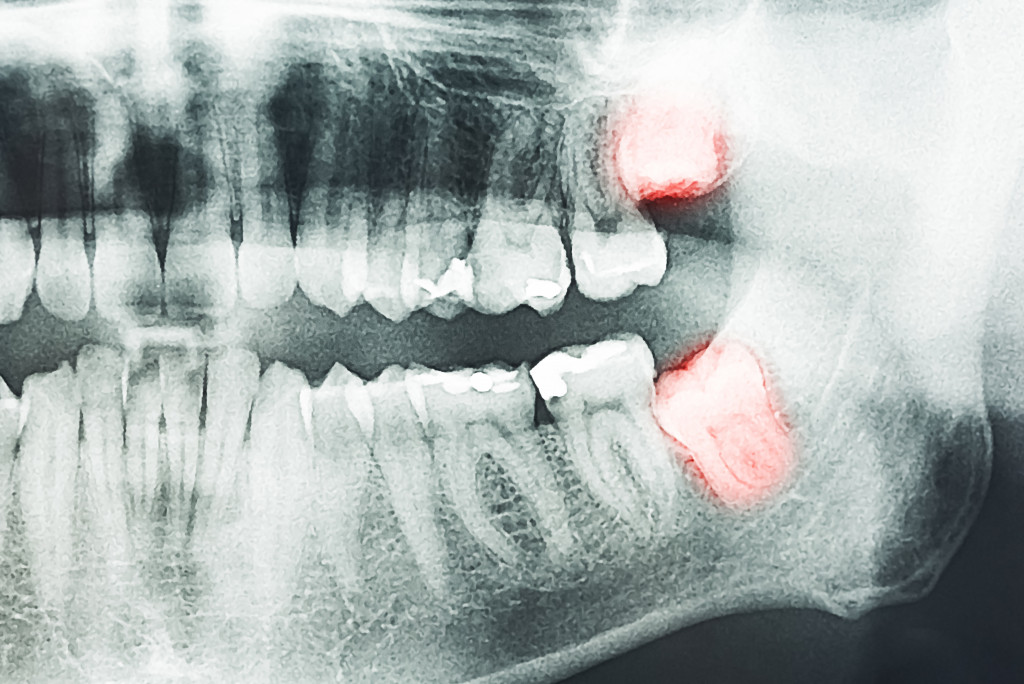- Over-the-counter pain relievers can be used but should be taken according to packaging instructions or with professional advice.
- Using cold and warm compresses can provide relief from wisdom tooth pain.
- Stick to a soft diet, avoid spicy, acidic, and sugary foods and drinks during the healing process.
- Consult a dentist if home remedies are not enough to alleviate pain, as professional wisdom tooth extraction may be necessary.
- Ultimately, it’s essential to prioritize your oral health and seek professional help when needed.
Experiencing pain from a wisdom tooth can be a daunting and uncomfortable situation. These third molars usually make their appearance in late adolescence or early adulthood, often bringing along discomfort. To help you navigate through this painful period and make an informed decision about dealing with wisdom tooth pain, here are five valuable tips.
1. Proper Oral Hygiene Practices
Maintaining good oral hygiene is crucial when dealing with wisdom tooth pain. Keeping your mouth clean can prevent infections and minimize discomfort around the erupting tooth.
Brush your teeth regularly, especially after meals, ensuring you reach the back of your mouth where the wisdom teeth are. An antiseptic mouthwash can further aid in keeping the area clean and free from bacteria, potentially reducing pain and inflammation.
2. Use of Over-the-Counter Pain Relievers

Over-the-counter (OTC) pain relievers can be great in managing wisdom tooth pain. Over-the-counter medications such as ibuprofen or acetaminophen can efficiently alleviate pain and diminish inflammation.
However, it’s essential to follow the recommended dosage instructions on the packaging or consult with a healthcare professional. While OTC medications can provide temporary relief, they are not a permanent solution and are most effective when used in a broader management plan.
3. Cold and Warm Compresses
Applying a cold or warm compress to the affected area can relieve wisdom tooth pain. A cold compress can help reduce swelling and numb the pain, while a warm compress can soothe and relax your jaw muscles.
To use this method, simply hold a cold pack or a warm, moist cloth to the outside of your cheek for about 15-20 minutes. Alternating between cold and warm compresses can be especially effective in providing relief.
4. Soft Diet and Avoiding Certain Foods
When dealing with wisdom tooth pain, the type of food you consume can make a difference. Sticking to a soft diet can help minimize irritation and prevent further pain.
Avoid foods that are hard, crunchy, or sticky, as they can exacerbate the pain. Opt for soft, easy-to-chew foods like mashed potatoes, yogurt, soups, and smoothies. Staying well-hydrated is also essential, but avoid using straws as the suction can disturb healing gums.
Here are some foods to avoid:
Avoiding Spicy Food
Spicy foods can cause inflammation and irritation to sensitive gum tissues, especially around the extraction site. Even if you enjoy the heat, avoid spices and hot sauces until your mouth has fully healed. This might be a good time to experiment with non-spicy flavors and seasonings.
Curb Consumption of Acidic Foods and Drinks

Acidic foods and drinks, such as citrus fruits and soda, may delay healing and worsen pain due to their ability to irritate. Limit your intake of these items, focusing instead on neutral or alkaline foods and drinks, which can help soothe irritated oral tissues.
Sugary Foods and Tooth Decay
High-sugar foods, including candies, cakes, and soft drinks, can increase the risk of tooth decay and gum disease, especially when the oral hygiene routine is disrupted due to wisdom tooth discomfort. Opt for naturally sweet foods like fruits if you’re craving something sweet, and ensure to rinse your mouth thoroughly after consumption.
Alcohol and Mouth Healing
The consumption of alcohol should be avoided during the healing process as it can dry out the mouth, delay wound healing, and increase the risk of complications. Non-alcoholic beverages, like herbal teas or water, are a good alternative during this period, as they can keep you hydrated while promoting saliva production, which is essential for oral health.
5. When Home Remedies Aren’t Enough
Sometimes, despite trying various home remedies and pain management techniques, the wisdom tooth pain may persist or worsen. In such cases, it’s essential to consult a dentist to assess the situation.
Your dentist might suggest a professional wisdom tooth extraction, especially if the tooth is impacted or causing significant discomfort and potential harm to adjacent teeth. This procedure involves removing the problematic tooth, ensuring long-term relief from pain and preventing future dental issues.
Final Words
Dealing with wisdom tooth pain can be a challenging experience. Still, by maintaining proper oral hygiene, using OTC pain relievers, applying cold and warm compresses, opting for a soft diet, and considering professional wisdom tooth extraction when necessary, you can effectively manage and alleviate the discomfort. Remember, while home remedies can provide temporary relief, consulting with a dental professional is always recommended for persistent pain.



